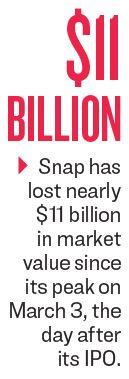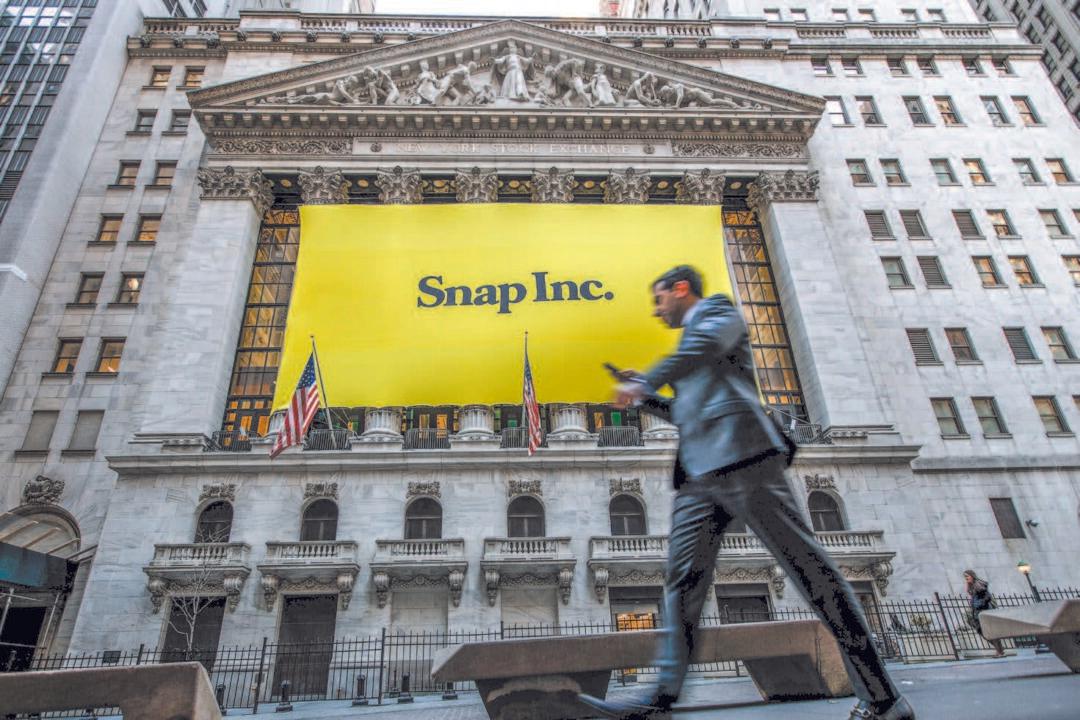Shares of Snap Inc., the parent company of Snapchat, have been on a roller coaster since its initial public offering (IPO) in March.
The year’s hottest IPO was a relief for many “unicorns,” technology startups valued at more than a billion dollars. However, in the public market, unicorns are struggling to match the rich valuations they have received from private investors.
The share price of Snap (ticker symbol: SNAP) fell below the IPO price of $17. The company’s market value now stands at about $17.4 billion, down $11 billion from its peak of $28.4 billion the day after its IPO on March 2.
The company has failed to address worries about its growth and the competition coming from Facebook-owned Instagram, according to analysts.
“We have been wrong about Snap’s ability to innovate and improve its ad product this year,” wrote Brian Nowak, equity analyst at Morgan Stanley, in a research report. Morgan Stanley was the lead underwriter for the company’s IPO.






